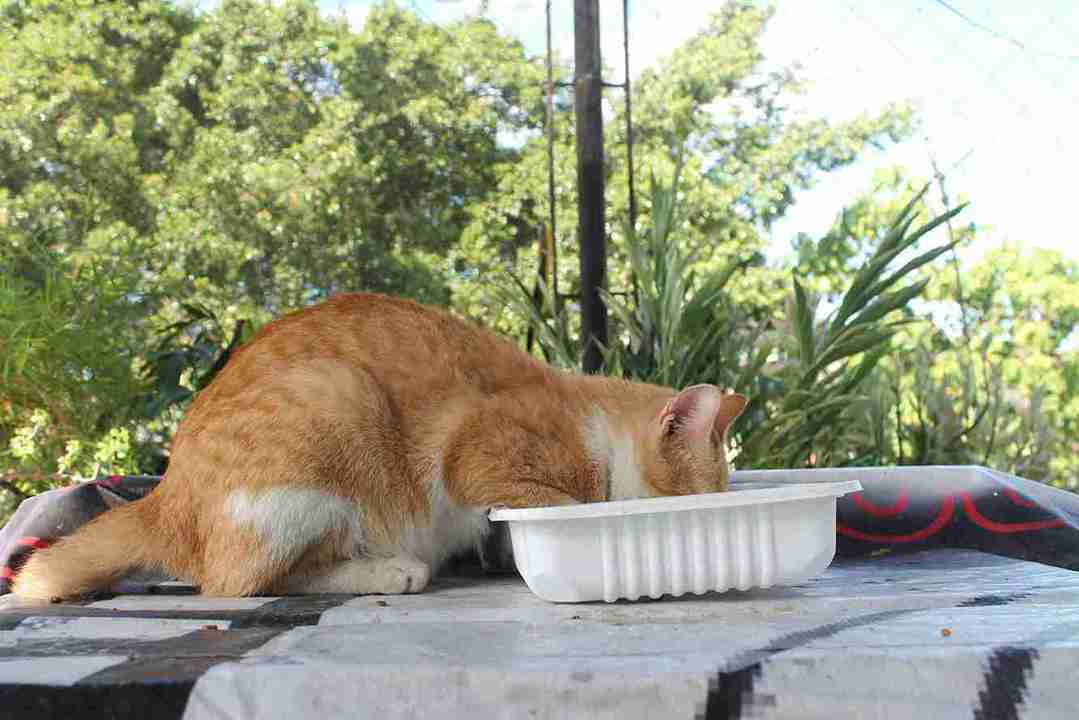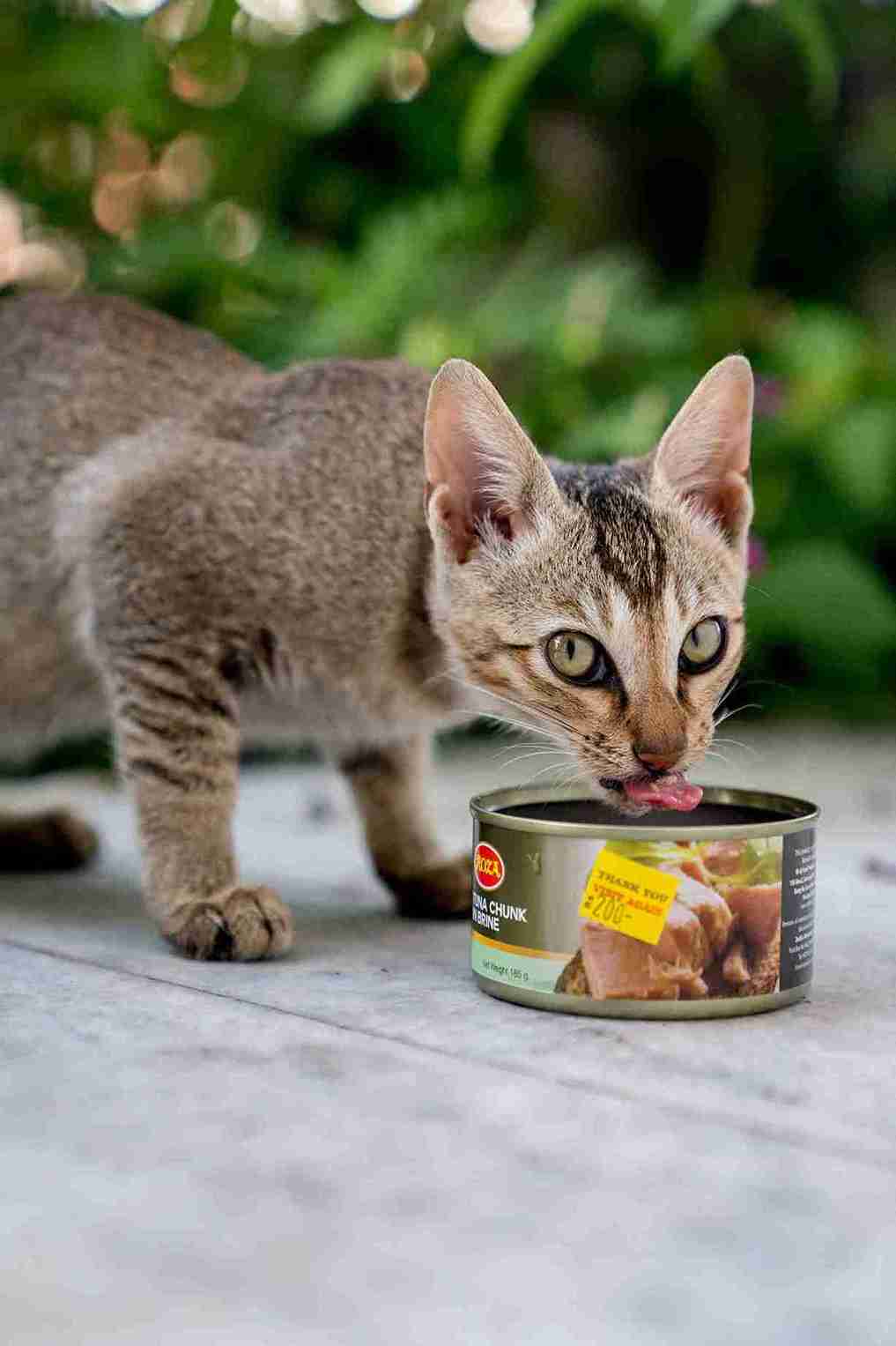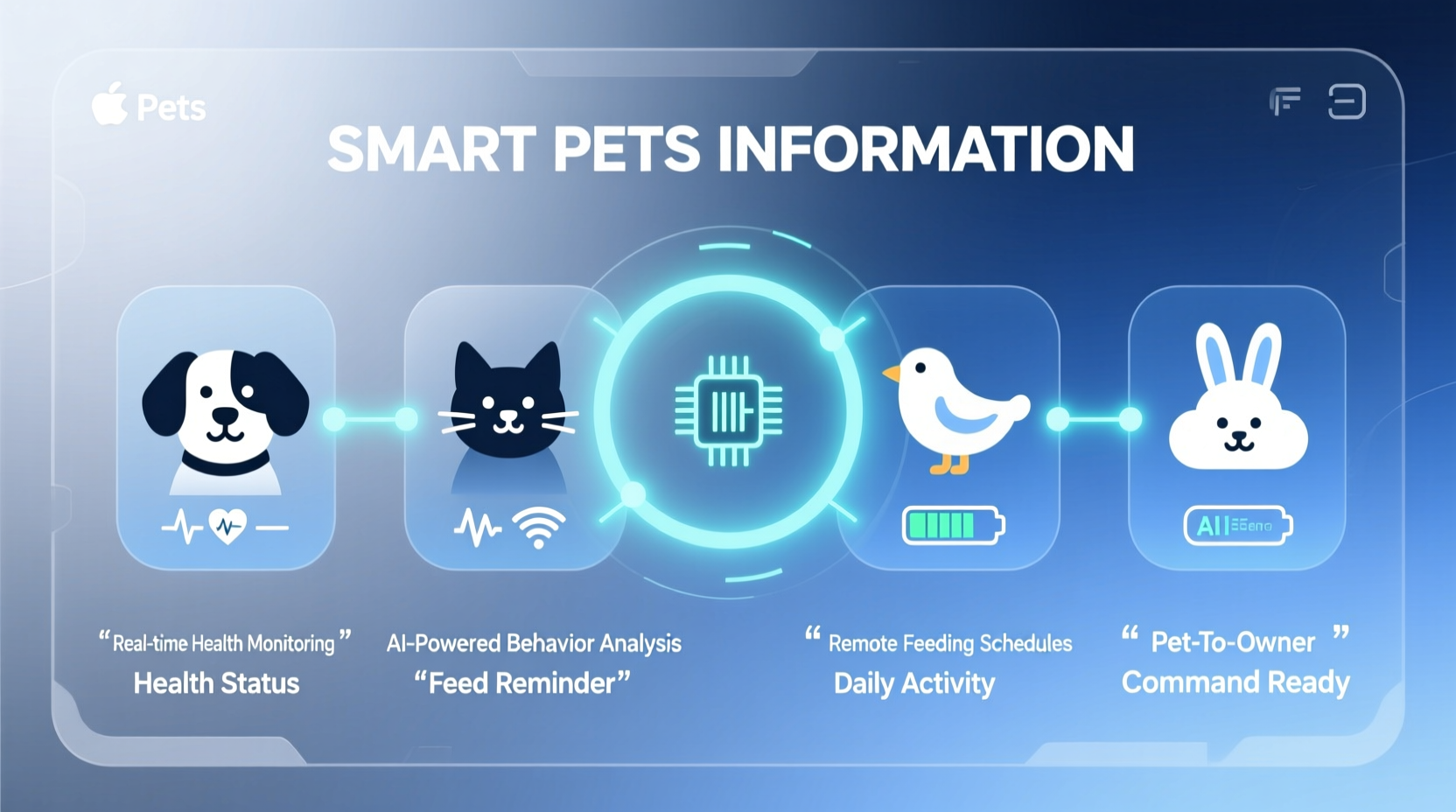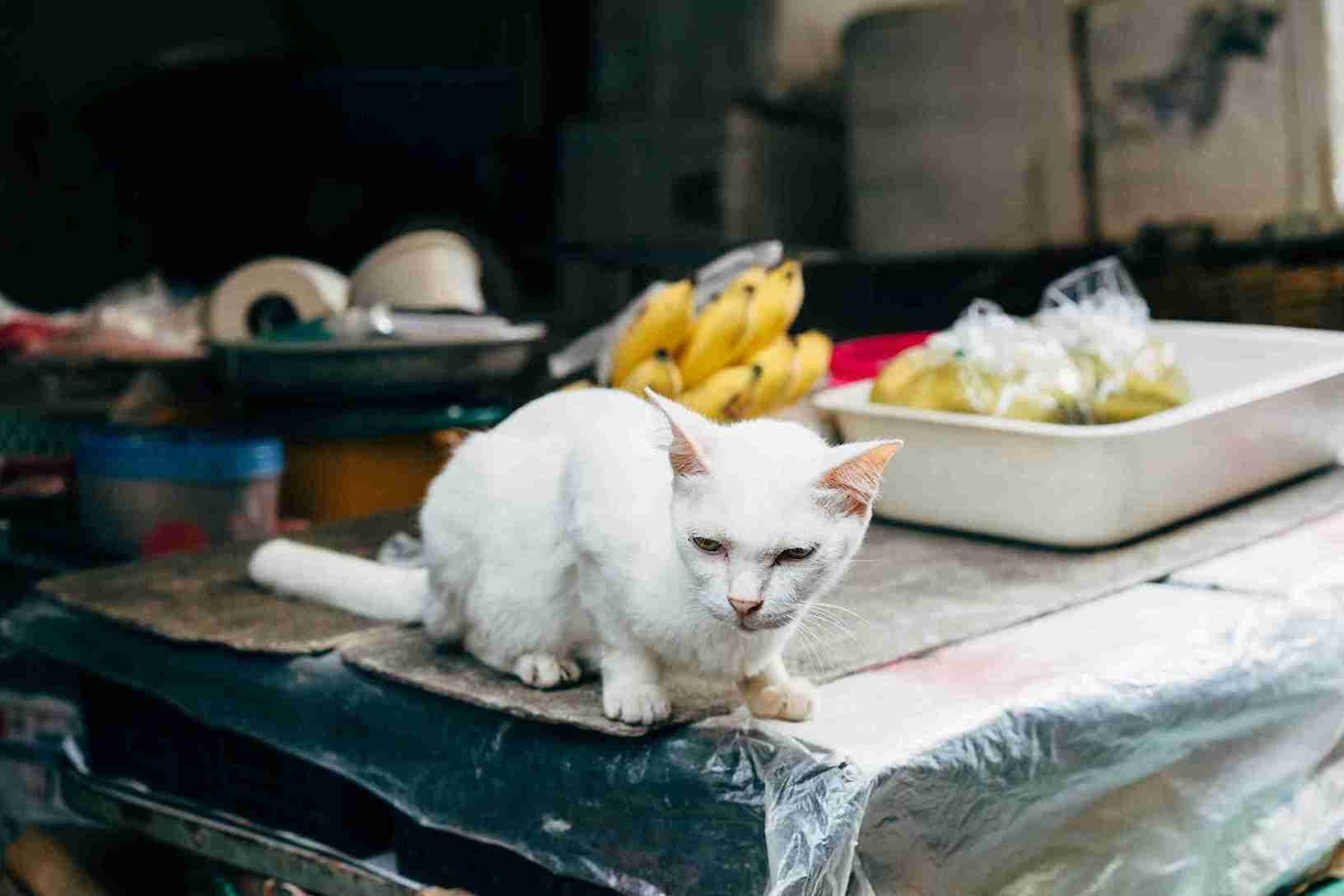1. Introduction
Many cat owners think the only way to help their cat put on weight is by giving more commercial food or high-calorie treats. That’s actually a common misconception. Feeding your cat too much packaged food can cause digestive issues, nutrient imbalances, or obesity. None of these is good for your furry friend.
You can help your cat gain a healthy weight safely with homemade cat food. These recipes are rich in nutrients, high in protein, and easy to digest. Homemade meals let you choose the ingredients. You can add quality proteins, healthy fats, and key vitamins to help with healthy weight gain.
In this guide, you’ll discover:
- Why do some cats struggle to gain weight?
- Essential nutrients your cat needs to gain weight safely.
- How to create balanced homemade meals for cats.
-

Delicious, high-calorie homemade meals to help your skinny cat reach a healthy weight — naturally and safely
2. Understanding Cat Weight Gain Needs
Before checking recipes, it’s important to understand why cats may be underweight and how to help them gain weight safely.
2.1 Why Cats May Be Underweight
Cats can be underweight for various reasons:
- High metabolism: Some cats burn calories faster than they eat.
- Health conditions: Issues like parasites, hyperthyroidism, or digestive problems can hinder weight gain.
- Picky eating habits: Cats may refuse certain commercial foods or ingredients.
- Age factors: Kittens must consume more calories to grow. Senior cats may find it hard to absorb nutrients.
2.2 Essential Nutrients for Weight Gain
To help your cat gain weight safely, focus on these nutrients:
- High-quality protein: Chicken, turkey, fish, and eggs support muscle growth.
- Healthy fats like fish oil, olive oil, and coconut oil are high in calories. They also boost coat quality.
- Limit carbohydrates: Rice, oats, and sweet potatoes give energy, but they shouldn’t be the main part of the diet.
- Vitamins & minerals: Taurine, calcium, and B vitamins are vital for health.
2.3 Importance of Balanced Homemade Cat Food
A homemade diet is about balanced nutrition, not just adding calories. Too much fat or carbs and not enough protein can lead to digestive problems or nutrient gaps. The goal is to combine protein, fat, and essential nutrients in the right proportions. This approach helps your cat gain weight healthily and safely.
3. Key Ingredients for Homemade Cat Food to Gain Weight
Some people think any high-calorie food will automatically make a cat gain weight. That’s a misconception. Cats focus on nutrition, so the quality of ingredients is key, not just the calories. Eating the right mix of protein, fats, and essential nutrients helps you gain weight healthily. This way, you avoid digestive problems and nutrient deficiencies.
3.1 High-Protein Options
Protein is the foundation of any weight-gain diet because it builds muscle and maintains overall health. Some great high-protein ingredients include:
- Chicken – lean and easy to digest.
- Turkey – nutrient-dense and highly palatable.
- Fish – salmon or tuna for both protein and healthy fats.
- Eggs – a complete protein source, easily digestible.
3.2 Healthy Fats
Fats are high in calories, so they help cats gain weight quickly. They also support healthy skin and a shiny coat.
- Fish oil – omega-3 fatty acids for coat shine.
- Olive oil – heart-healthy and easy to digest.
- Coconut oil – supports energy and metabolism.
3.3 Carbohydrates in Moderation
While not essential, small amounts of carbs can provide additional calories and energy:
- Rice – gentle on the stomach, easy to digest.
- Oats – fiber-rich, provide slow energy release.
- Sweet potato – vitamin-rich and palatable.
3.4 Supplements for Weight Gain
Even with fresh ingredients, certain supplements are important:
- Taurine – an essential amino acid for heart and eye health.
- Calcium – supports bones and muscle function.
- B-vitamins – boost metabolism and energy.
3.5 Tips for Ingredient Quality
- Always use fresh, human-grade meat.
- Avoid additives, preservatives, and artificial flavors.
- Introduce one new ingredient at a time to check tolerance.
4. Easy Homemade Cat Food Recipes for Weight Gain
Some cat owners think homemade recipes are too complicated or time-consuming. Simple recipes with the right ingredients can be ready in under 30 minutes. You can also store them safely for several days.
Here are some nutrient-packed, calorie-dense recipes that help cats gain weight naturally:
4.1 Chicken & Rice Cat Meal
- Ingredients: 1 cup cooked chicken, 1/4 cup cooked rice, 1 tsp olive oil.
- Method: Chop chicken finely, mix with rice and oil, and serve slightly warm.
- Benefits: High in protein and easily digestible carbohydrates for energy.
- Ingredients: 1 cup cooked salmon, 1/4 cup mashed sweet potato, 1 tsp fish oil.
- Method: Mix and serve lukewarm.
- Benefits: Omega-3 fatty acids and protein promote weight gain and coat health.
- Ingredients: 1 cup cooked turkey, 1 boiled egg, 1 tsp coconut oil.
- Method: Mince turkey, mash egg, mix with coconut oil, and serve.
4.4 High-Calorie Kitten Food
- Ingredients: 1/2 cup chicken, 1/4 cup oats, 1 tsp olive oil, 1/4 cup cooked carrot puree.
- Method: Blend or mash together for soft, easy-to-eat food.
- Benefits: Extra calories and nutrients for growing kittens.
- Serve slightly warm to enhance aroma.
- Introduce gradually to your cat’s current diet.
- Store leftovers in the fridge for up to 3 days or freeze for longer storage.
Using the right ingredients and simple recipes, you can make homemade meals that help your cat gain weight safely. This way, they’ll stay happy and healthy too.

5. Feeding Guidelines and Portion Control
Many cat owners think that feeding more food automatically helps a cat gain weight. That’s not entirely true. Feeding too much can result in digestive problems, obesity, or nutritional imbalances, even if the food is made at home. The key is portion control and frequency, tailored to your cat’s age, weight, and activity level.
5.1 How Much to Feed
- Kittens: 4–5 small meals per day. They need extra calories to support growth.
- Adult cats: 2–3 balanced meals daily, adjusting portions based on weight progress.
- Senior cats: 2 small meals per day with easily digestible protein.
Tip: Start with a baseline of 30–35 calories per pound of body weight per day and adjust gradually based on weekly weight checks.
5.2 Feeding Frequency
- Smaller, frequent meals are easier for cats to digest and help maintain consistent energy levels.
- Avoid leaving large portions out all day — cats may graze less and gain weight more slowly.
5.3 Monitoring Progress
- Weigh your cat weekly to track healthy weight gain.
- Adjust meal portions if weight gain is too fast or too slow.
- Watch for digestive signs — diarrhea or vomiting may indicate too much fat or new ingredients.
6. Tips to Encourage Cats to Eat Homemade Food
Many people assume cats will automatically love homemade food. In reality, cats can be picky eaters, and even nutritious meals may be ignored if not served correctly. The goal is to make homemade food irresistible and easy to digest.
6.1 Make food appealing.
- Serving food slightly warm enhances aroma and taste.
- Present in shallow dishes for comfort.
- Mix textures — mash some ingredients while keeping chunks for chewing pleasure.
6.2 Gradual Introduction
- Mix homemade food with your cat’s current diet at first.
- Increase the homemade portion gradually over 7–10 days to avoid digestive upset.
6.3 Encourage Eating with a Positive Environment
- Feed in a quiet, low-stress area.
- Offer treats and praise when your cat eats the new food.
- Interactive feeding — like puzzle feeders — can make mealtime engaging.
6.4 Handling Picky or Hesitant Cats
- Experiment with different proteins: chicken, turkey, or fish.
- Add small healthy fats like olive oil or a bit of tuna juice to increase palatability.
- Avoid forcing food — gradual encouragement works best.
Control portions and make food appealing. This way, your cat can enjoy enough nutrient-rich homemade meals. It helps them gain weight safely and steadily, without stress or digestive problems.
7. Common Mistakes to Avoid
7.1 Overfeeding Unhealthy Ingredients
- Avoid giving too many carbs or dairy products — cats have difficulty digesting lactose.
- Excess carbs can lead to blood sugar spikes without promoting muscle gain.
7.2 Ignoring Nutritional Balance
- Protein, fat, and vitamins must all be present.
- Homemade meals high in fat but low in protein can cause muscle loss rather than weight gain.
7.3 Feeding Unsafe Foods
- Never feed cats chocolate, onions, garlic, grapes, or artificial sweeteners.
- Even small amounts of these foods can be toxic or fatal.
7.4 Neglecting Hydration
- Cats on homemade diets may need extra water, especially if meals are high in protein and fat.
Ensure fresh water is available at all times to prevent kidney or urinary issues.
8. DIY Treats and Supplements to Boost Weight
8.1 High-Calorie Homemade Treats
- Tuna bites: Mix canned tuna with a small amount of cooked egg and bake into bite-sized treats.
- Egg-based treats: Boiled eggs mashed with a dash of olive oil for a protein-rich snack.
- Chicken cubes: Small oven-baked chicken pieces as occasional high-protein treats.
8.2 Natural Supplements
- Fish oil drops: Add omega-3 fatty acids for coat health and a calorie boost.
- Powdered egg whites: Can be sprinkled over meals to increase protein content.
- Taurine supplement: Essential for heart and eye health, especially in weight gain diets.
8.3 Incorporating Treats Into Daily Meals
- Use treats to encourage eating if your cat is hesitant about homemade meals.
- Limit treats to 10–15% of total daily calories to maintain nutritional balance.
- Combine with interactive feeding methods to stimulate appetite and prevent boredom.
Avoid common mistakes and use DIY treats wisely. You can help your cat gain weight safely, increase their appetite, and keep a balanced diet.
9. Monitoring Health and Adjusting Diet
Many cat owners assume that once they start homemade meals, weight gain happens automatically without any monitoring. That’s a misconception. Even the best homemade cat food requires close monitoring and occasional adjustments to ensure your cat gains weight safely and steadily.
9.1 Watch for Digestive Issues
- Sudden changes in diet can cause diarrhea, constipation, or vomiting.
- Introduce new ingredients gradually and observe your cat’s reaction.
- If issues persist, adjust the recipe or consult your vet.
9.2 Adjust Food Consistency or Ingredients
- Some cats prefer wet or soft food, especially seniors or picky eaters.
- Modify texture or protein source if your cat refuses to eat.
- Ensure balanced nutrition even when changing ingredients.
9.3 Regular Weight Checks
- Weigh your cat once a week to track progress.
- Aim for gradual weight gain — 0.5–1% of body weight per week is ideal.
- Adjust calorie intake if weight gain is too slow or too fast.
hen Needed
- If your cat isn’t gaining weight despite proper feeding, medical issues may be involved.
- Bring your cat to a vet for a thorough checkup to rule out thyroid, digestive, or metabolic problems.
A vet can recommend supplements or tailored diets to complement homemade meals.
10. Conclusion and Next Steps
Some cat owners believe that homemade cat food is complicated, time-consuming, or unnecessary. The truth is, with a few simple recipes, proper portioning, and monitoring, you can safely help your cat gain weight while providing nutrient-rich, wholesome meals.
10.1 Recap of Key Points
- Understand your cat’s weight gain needs and essential nutrients.
- Use high-protein, healthy fat, and nutrient-dense ingredients in homemade recipes.
- Follow feeding guidelines, portion control, and gradual introduction for best results.
- Avoid common mistakes like overfeeding carbs or unsafe foods.
- Monitor health and adjust diet as necessary.
10.2 Encouragement for Cat Owners
- Homemade cat food allows you to control ingredient quality and support long-term health.
- Even picky eaters can enjoy meals with gradual introduction and appealing textures.
10.3 Call to Action
- Start preparing these homemade meals today and see your cat gain healthy weight naturally.
- Combine meals with occasional high-calorie treats and supplements to maximize results.
By following these steps, recipes, and tips, you can provide safe, effective, and nutritious homemade cat food that helps your feline friend gain weight healthily while improving overall well-being and coat health.


Leave a Reply